Tag Archives: North Atlantic right whale
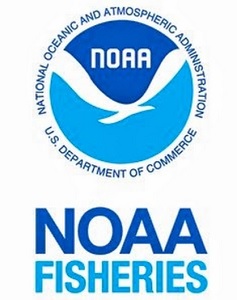
Pot/Trap Fisheries Regulations to Help Save North Atlantic Right Whales Announced
NOAA Fisheries and our partners are dedicated to conserving and rebuilding the North Atlantic right whale population, which is endangered, declining, and experiencing an ongoing Unusual Mortality Event. Entanglement in commercial fishing gear is a primary cause of mortalities and serious injuries of North Atlantic right whales. Working with the Atlantic Large Whale Take Reduction Team, a group of advisors consisting of fishermen, scientists, conservationists, and state and federal officials, we have completed Phase 1 of the modifications to the Atlantic Large Whale Take Reduction Plan to continue to reduce whale entanglements. Today, we are announcing the final rule to modify the Atlantic Large Whale Take Reduction Plan. >click to read< 15:22
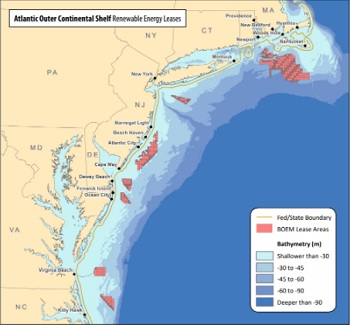
Offshore wind opposition is growing From N.E. to N.C. – Nantucket Wind Suit May Have Virginia Echoes
A group of Nantucket Island, Massachusetts residents have filed suit challenging the pre-construction environmental review on a massive offshore wind complex planned off its shores. The issues raised may have a direct impact on the similar wind energy project planned off Virginia Beach, which is only now beginning its environmental impact process.,, The umbrella group is using the name “Coalition for Ocean Protection and Safety.” The Nantucket group, playing off the code designation for its local airport, call themselves ACK RATS, with the RATS standing for Residents Against Turbines. The wind developments there are not 27 miles offshore the way it is planned in Virginia. >click to read<
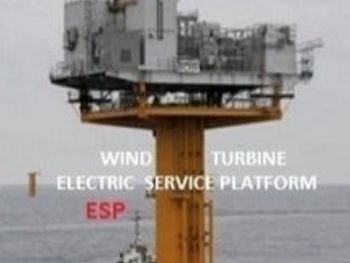
Nantucket Residents Against Turbines: Presser Wednesday to announce federal lawsuit to halt construction
The group indicated Tuesday that their suit will be based on efforts to protect the Northern Atlantic right whale. “The MA/RI wind lease areas cover one of the whale’s last strongholds, for migration, foraging and raising their young,” the group says on its website. “We are concerned with the adverse impacts from the increased construction vessel traffic, pile driving, and operational noise on the critically endangered NARW. NOAA fisheries determined the Vineyard Wind project, which is located in one of the last North Atlantic Right Whale foraging and nursery strongholds, and which will involve thousands of miles of vessel trips, will not jeopardize the species. This determination is not supported by the evidence.” >click to read< , and >here< 14:19
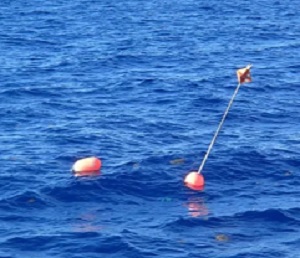
Second phase of regulation changes to protect North Atlantic right whales include groundfisheries
The federal Large Whale Take Reduction Team instituted sweeping changes in the rules governing the Northeast lobster and Jonah crab fisheries to help reduce gear entanglements. Now, the team is turning its attention to other fisheries in the Northeast and Mid-Atlantic The second phase is expected to significantly impact a number of commercial gillnet fisheries in New England and elsewhere along the East Coast, including monkfish, spiny dogfish, skate and other groundfish fisheries. The second phase also will address trap/pot fisheries not covered in the first phase, including Atlantic deep-sea red crab, slime eels, black sea bass, shrimp, scup and others. >click to read< 18:25
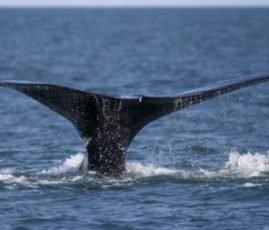
Canada implements the $20M Whalesafe Gear Adoption Fund
The Honourable Bernadette Jordan, announced the new $20 million Whalesafe Gear Adoption Fund, to help harvesters in Atlantic Canada and Quebec adopt whalesafe gear into their commercial fishing operations. Over the next two years, this funding will be available to support Indigenous and non-indigenous harvesters, not-for-profit organizations, academia and other partners to purchase, test and refine existing whalesafe gear, such as low breaking strength rope and ropeless gear technology, with the goal of making them operational by 2023. The Whalesafe Gear Adoption Fund will also provide support to Canadian manufacturers to encourage domestic supply of commercially-ready whalesafe gear by 2023. >click to read< 14:53
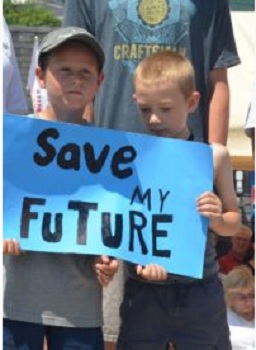
Challenges abound, but lobstermen say they’re in it for the long haul
Around 2 a.m. each morning, a parade of trucks from around the region begins the journey down to the Stonington docks, marking the start of another day of lobstering in Maine. In short, a large part of coastal Hancock County and beyond depend on lobster. One of the locals that has made her living off lobster is Julie Eaton, a member of Stonington’s 300-plus lobster boat fleet. She’s been at it for 39 years now and to her it’s not just a job, it’s a way of life. Every fisherman has their own story, but almost all of them say they got into the business because they love working on the ocean. 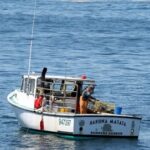 For the hundreds of lobstermen in the region, things are going pretty well at the moment, even with the pandemic. While things are going well, if you talk to almost any Downeast lobstermen about the future of their industry, the conversation will come to two things: right whales and wind turbines. >click to read< 13:28
For the hundreds of lobstermen in the region, things are going pretty well at the moment, even with the pandemic. While things are going well, if you talk to almost any Downeast lobstermen about the future of their industry, the conversation will come to two things: right whales and wind turbines. >click to read< 13:28

Shellenberger Discusses Offshore Wind Farm Proposal – “This is literally the worst project I have ever seen,”
The California resident, author and environmental advocate spoke about how an offshore wind farm project planned 15 miles off the coast from Atlantic City to Stone Harbor is bad for the environment, wildlife, marine life and the fishing industry. Shellenberger, who is a proponent for nuclear energy, spoke of how the wind farm would not be an efficient way to receive power, would take up too much real estate and not be a consistent source of power. Tricia Conte, of Ocean City, founder of Save Our Shoreline, said in an interview prior to the program, “We are very excited to have Michael Shellenberger here in Ocean City. He is presenting the side that no one else is telling us.” Video >click to read<10:27

Lobster industry is anxious over upcoming North Atlantic right whale protection rules
The federal government is working on new rules designed to reduce risk to North Atlantic right whales,,, One of the threats the whales face is entanglement in ropes that connect to lobster and crab traps in the ocean. Early indications show that the changes required by the rules could be significant. They’re also vulnerable to ship strikes, and face the looming threat of warming oceans. Acting NOAA Fisheries Assistant Administrator Paul Doremus said in June that the U.S. and Canada, which also harvests lobsters, must “take and sustain additional efforts to reduce right whale mortalities and serious injuries.” >click to read< 10:39

Lobstermen And Conservationists To Closely Watch Right Whale Court Case
Conservationists and fishermen will be closely watching a federal court case closely over the next 12 days. “Arguably, the existence of the Massachusetts lobster fishery is at stake today,” The case is being pushed by activist Max Strahan, who wants a judge to ban Massachusetts from authorizing fisheries that use vertical ropes that can entangle and kill North Atlantic right whales. >click to read< 08:07
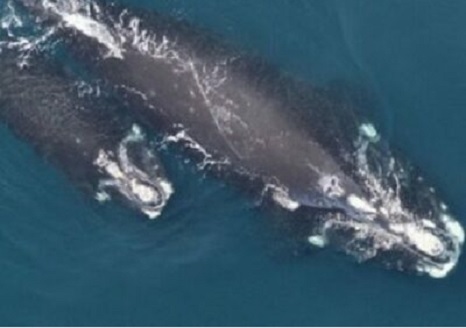
Whales Are Shrinking. Scientists Blame Commercial Fishing Gear
The findings, published today in the journal Current Biology, reveal that when fully grown, a North Atlantic right whale born today would be expected to be about one meter shorter than a whale born in 1980. The stunted growth of the whales coincides with an increasing rate of entanglements. A 2012 study from the New England Aquarium revealed,,, Researchers acknowledge that entanglements do not explain all of the reduced growth. Other factors might be climate change, collisions and noise from ships, and the shifting availability of tiny crustaceans called copepods, their primary food source. >click to read< 13:30
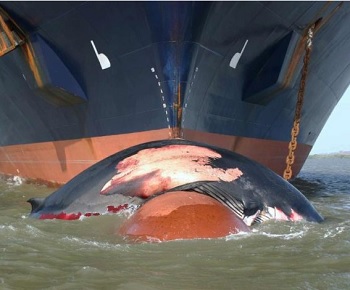
Transport Canada urged to enforce ship speed limits protecting endangered right whales
For the second year in a row, the majority of vessels passing through the Cabot Strait, between Newfoundland and Nova Scotia on Canada’s East Coast, are not complying with a Transport Canada voluntary slowdown request intended to protect critically endangered North Atlantic right whales in a key migratory passage. The Strait is also the primary route from the Atlantic Ocean to the Gulf of St. Lawrence and the country’s second-busiest port in Montreal. The voluntary initiative, established in 2020,,, >click to read< The National Marine Fisheries Service (NMFS) released a key report called a Biological Opinion yesterday – >click to read<17:20

Biological Opinion to Protect Right Whales Met With Opposition on All Sides
The National Marine Fisheries Service (NMFS) released a key report called a Biological Opinion yesterday that calls for a 98 percent reduction in risk to North Atlantic right whales over the next 10 years. The goal is meant to be achieved over the course of four phases that correspond with increasingly tight restrictions on lobster and crab fisheries as well as other fixed-gear fisheries that use vertical buoy ropes. Vertical ropes attached to trap/pot gear is known to lethally entangle the whales. >click to read< 16:38
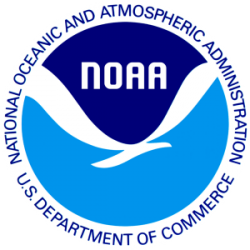
NOAA Fisheries Releases Final “Batched” Biological Opinion & North Atlantic Right Whale Conservation Framework
NOAA Fisheries released its Endangered Species Act (ESA) section 7 Biological Opinion on the authorization of eight federal fisheries management plans under the MSA two interstate fishery management plans under the Atlantic Coastal Fisheries Cooperative Management Act, and the implementation of the New England Fishery Management Council’s Omnibus Essential Fish Habitat Amendment 2. We also released the North Atlantic Right Whale Conservation Framework for Federal Fisheries in the Greater Atlantic Region (Conservation Framework). NOAA Fisheries has evaluated the effects of the authorization of the fisheries, as modified by the Conservation Framework, on endangered and threatened species. The 10 fisheries included in the Opinion are: >click to read< 12:22
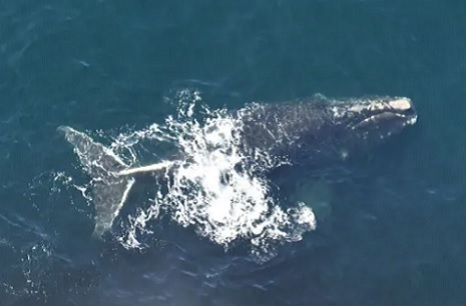
Right whale spotted in Canadian waters, DFO imposes 15-day crab fishing closure
The first North Atlantic right whale of the season has been sighted in Canadian waters, triggering an early and localized snow crab fishery closure in the Gulf of St. Lawrence. Observers flying in a plane spotted the whale Sunday afternoon northeast of the Magdalen Islands in the Cabot Strait.,, DFO said Monday it has responded. “This sighting has triggered a 15-day fishing closure in crab fishing area 12F,” the department said in a statement. Fishing area 12F is east of the Magdalen Islands. >click to read< 17:44
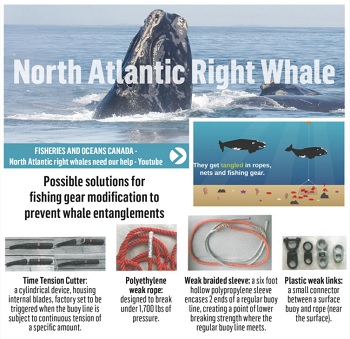
PEI fishermen to integrate ‘weak rope’ in 2023
Gear adjustments regarding the North Atlantic Right Whale for the 2021 fishing season are consistent with last year. Rope markings on fishing gear, first implemented in 2020, are designed to help pinpoint where right whale entanglements in gear take place. The fact there haven’t been any entanglements since the marking became mandatory is positive, Melanie Giffin, Program Planner with the PEI Fishermen’s Association, said. “It is kind of a good news story that we don’t know if they are working or not,” she said. According to Barre Campbell, DFO Media relations, there were no North Atlantic Right Whale entanglements or deaths reported in Canadian waters in 2020. However, there is a plan to follow,,, >click to read< 23:08

Births rates up among North Atlantic Right Whales
North Atlantic right whales gave birth over the winter in greater numbers than scientists have seen since 2015, an encouraging sign for researchers who became alarmed three years ago when the critically endangered species produced no known offspring at all. Survey teams spotted 17 newborn right whale calves swimming with their mothers offshore between Florida and North Carolina from December through March. One of those calves soon died after being hit a boat, a reminder of the high death rate for right whales that experts fear is outpacing births. >click to read< 08:58
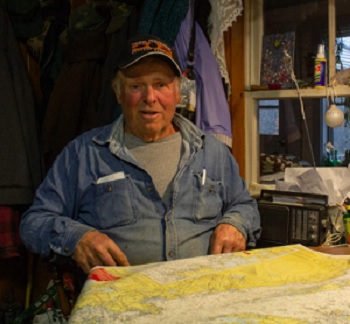
Fishermen, DMR: New North Atlantic Right Whale regulations could cripple lobster industry
The proposal, released in late December 2020, includes measures like regional gear marking, breakaway rope, extra traps per trawl line and restrictions on certain fishing areas. But it is the emphasis placed on ropeless fishing traps that has officials at the Maine Department of Marine Resources most concerned. In its Biological Opinion regarding right whales and the fishing industry, NMFS identifies ropeless fishing as a solution, among others, to reduce whale entanglements that cause death or serious injury. DMR argues that ropeless gear is largely under-researched and unaffordable. DMR used EdgeTech traps to estimate cost increases associated with converting to ropeless fishing,,, An EdgeTech fishing unit costs $3,750, >click to read< 19:36
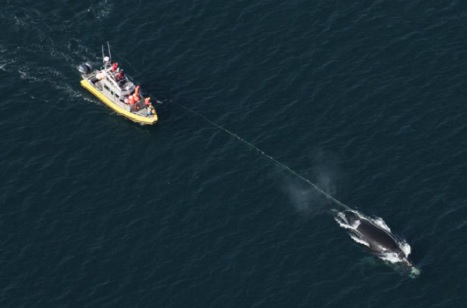
#ShowUsTheRope – Blamed for Right Whale Entanglements, Lobstermen say Show us the rope!
Snow Cone has triggered an outcry of frustration from fishermen, who say they’re being unfairly blamed for the decline of the critically endangered species. On Wednesday, March 10, a team from Provincetown’s Center for Coastal Studies freed Snow Cone from 300 feet of rope. The center described the team’s success on its Facebook page, and used a photo from an aerial survey that shows the whale and the telltale rope from 1,000 feet in the air. “So, I remember seeing this,” said Nick Muto. The Facebook post said the retrieved rope likely came from a fishery, but there was no close-up picture. “So my hashtag, #ShowUsTheRope, is me trying to lay it right on the Center for Coastal Studies,” >click to read< 20:06
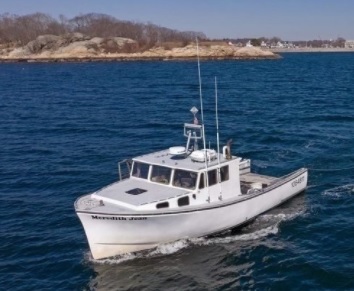
A Petition – Re examine the data of North Atlantic right whale entanglements and the Fishery closure
Meredith Cooney started this petition to Governor of Massachusetts Charlie Baker and 4 others. Currently there is a 3.5 month Massachusetts state water lobster fishery closure. Commercial lobster fisherman feel like we have been taking the brunt of blame on right whale deaths in recent years. The fact is that our lobster gear (bouy lines) have not caused any documented right whale deaths ever. Please >read, and sign the petition< 14:00
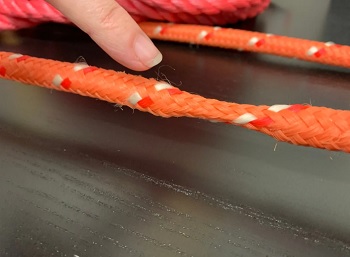
Lobstermen say proposed Right Whale rules are expensive, dangerous, and based on outdated data
During the final public hearings, Maine Department of Marine Resource Commissioner Patrick Keliher echoed a statement put out by Gov. Janet Mills earlier that week stating that “a one-size-fits-all approach in the state of Maine will not work.” Fishermen and environmentalists voiced concerns over the science federal regulators were using to make decisions, including the number of right whales alive today, how many have been harmed by entanglements or struck by ships and the effectiveness of proposed gear changes. “We all agree on one thing,” said Matt Gilley, a Harpswell lobsterman who spoke up at the virtual meeting. “That is that the data is flawed. In what direction, that remains to be seen.” >click to read< 11:10
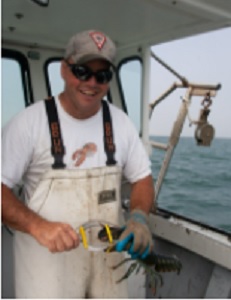
Massachusetts Lobstermen fear end of their livelihood
Dan Pronk is worried a new set of proposed NOAA and NMFS restrictions aimed at saving the North Atlantic right whale could be the nail in the coffin for the lobstering industry on Nantucket. “We’ve got five years left of lobstering down here,” said Pronk, the only commercial lobsterman on Nantucket, and one of only a handful of lobstermen around the region with traps south of Nantucket and Martha’s Vineyard. “It’s career ending if they get their way. We’re bending over backwards to appease these people. >click to read< 13:28
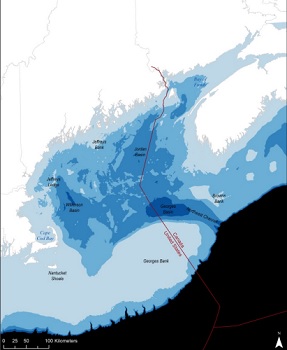
N.E. Aquarium Scientists urge NOAA to consider more aggressive Right Whale steps
In response to the National Oceanic and Atmospheric Administration’s Proposed Rule to amend the regulations implementing the Atlantic Large Whale Take Reduction Plan to reduce the incidental mortality and serious injury to North Atlantic right whales, fin whales, and humpback whales in northeast commercial lobster and crab trap/pot fisheries to meet the goals of the Marine Mammal Protection Act and the Endangered Species Act, the New England Aquarium submits this comment to express our strong reservations that the measures outlined in the Proposed Rule and accompanying Draft Environmental Impact Statement (DEIS) are not nearly aggressive enough to change the fate of North Atlantic right whales in U.S. waters. Based on our decades of NARW expertise, the Aquarium strongly urges NOAA to revise this Proposed Rule substantially before finalizing it. >click to read< 07:07
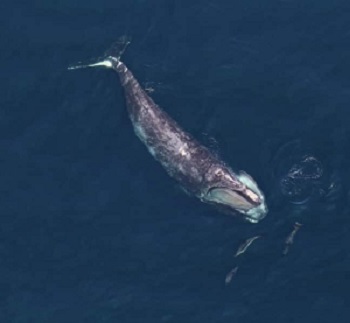
Enviro’s Lukewarm Reception For Canada Modifying Right Whale Protections
The Animal Welfare Institute has responded to the Canadian government’s recent decision to modify right whale protections, specifically concerning how they affect lobster and crab fishers. On the one hand, the institute welcomes and applauds the government commitment to “Whale Safe” ropeless fishing gear. However, it does not accept the promotion of weaker rope lines as a long-term solution for entanglement. >click to read< , with a link to the policy they oppose, unreasonably. 18:06
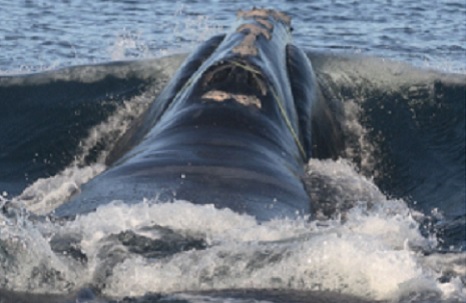
Lobster industry changes require more evidence on North Atlantic right whale deaths
Environmentalists and the lobster industry have rarely agreed on anything related to the effort to save the North Atlantic right whale. So when they do, people should pay attention. The National Oceanic and Atmospheric Administration is now taking comment on its Atlantic Large Whale Take Reduction Plan, aimed at reducing risk of rope entanglements and ship strikes to the endangered mammal by at least 60%. But members of both sides say no one has enough information to say that the sweeping changes would be effective. Our comment? Don’t pass a plan that puts the deaths of right whales on the backs of Maine lobstermen unless you can show that’s where it should be. >click to read< 08:14
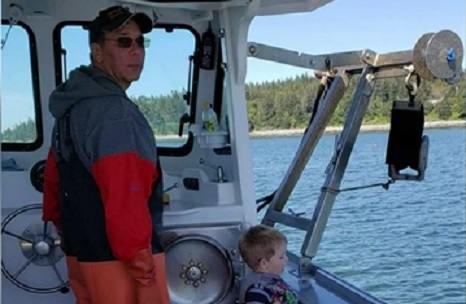
“What I’m reading now being proposed by NOAA will essentially put me out of business,,,”
Lobsterman John Drouin said in his 42 years of fishing around Cutler, he has never seen a right whale. Many other Maine lobstermen have said the same thing about their experience on the water. But that may not matter.,, he and Maine Marine Resources Commissioner Pat Keliher said the true threat in the NOAA documents would come in 10 years when scientists say the threat to whales should be reduced by 98 percent, effectively eliminating all lobster ropes and potentially ending the way they have fished for generations. “It’s devastating. Totally changes the face of the Maine lobster fishery,” said Keliher, “and we’d have no idea from an economic standpoint what it will mean in the long run.” >video, >click to read< 09:38
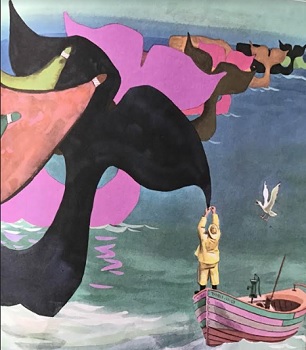
Right Whale – Wrong Data
This graph mistake turns this whole whale lobster debate on it’s head. They gauged their whole extinction claim on a population number that they figured from a birthrate curve overlaid on a population graph so naturally it looks like tons of whales are suddenly dying when the birthrate went down starting in 2010, one year after the record calving of 39 baby whales. 20 whales born in 2010, plus 7 more, attributed to their downward tracking line meant 27 whales died. Oddly nobody noticed this ridiculous mathematical blunder and for ten years they have been charging around wondering who was killing all these whales. >click to read< 19:29

P.E.I. lobster fishermen want exemption from new gear rule aimed at protecting whales
Island lobster fishermen should be be exempt from using gear designed to break free in the event of a whale entanglement, according to the P.E.I. Fishermen’s Association (PEIFA). The PEIFA wrote a letter to the Department of Fisheries and Oceans (DFO) to request lobster fishermen be exempt from new rules, which are expected to become mandatory by the end of 2022. The group says sighting data shows the endangered North Atlantic right whale is rarely in P.E.I. lobster fishing grounds. >click to read< 10:46

New Protected Species Regulations Finalized for Fixed Gear Fisheries
New Protected Species Regulations Finalized for Fixed Gear Fisheries and Industry Outreach on Required Gear Modifications. This advisory serves to provide you with information regarding new protected species regulations. More details on each new regulatory provision are provided in the bullets below. Seasonal Commercial Trap Closure, Gillnet Closure, Weak Rope Requirements for Comm. Trap Gear, DMF’s ongoing efforts to protect the North Atlantic right whale.,, >Click to read< 18:55






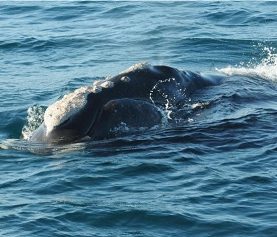



























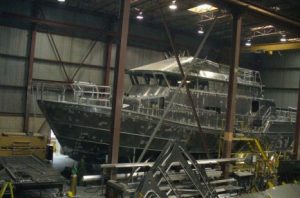
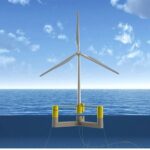
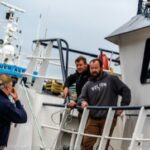

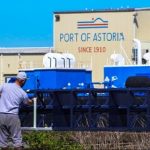
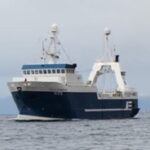



Right whales: Public comments range from ‘save the whales’ to ‘save the fishermen’
Samuel Sautaux posted his comment from Lentigny, Switzerland, located north of the Alps. His comment is among about 171,208 received from individuals who live near and far from the right whales’ cruising grounds and posted an opinion on the latest federal effort to protect the species on the public comment page overseen by NOAA. These comments are now being processed,,, Some of the comments are quite succinct, as was Sautaux’s. Others are more elaborate – including one from an author who signs as a 69-year-old, sixth generation lobsterman from Maine who says the proposal amounts to a “death sentence” on the industry. >click to read< 07:16
Share this post